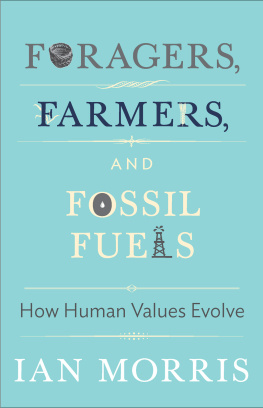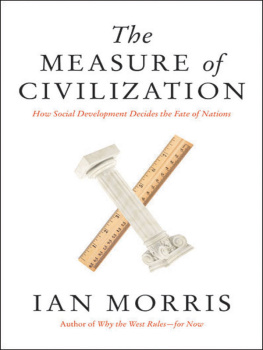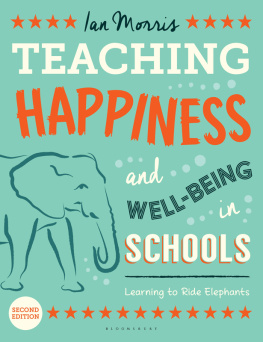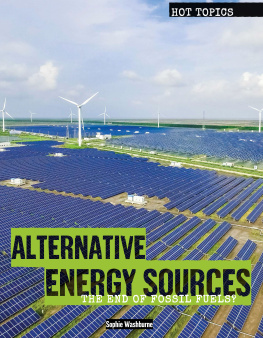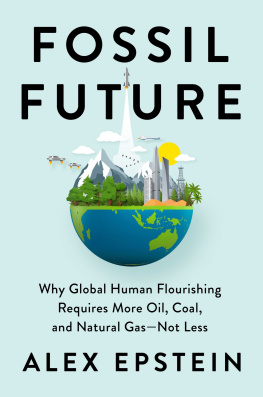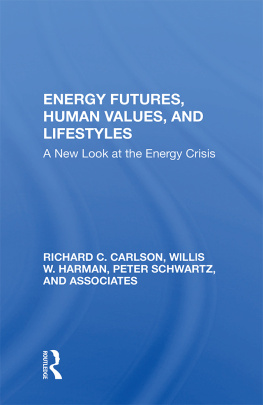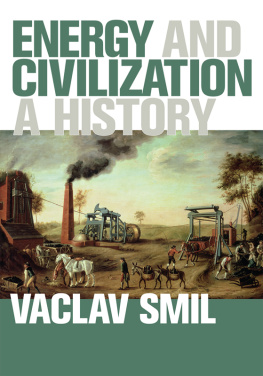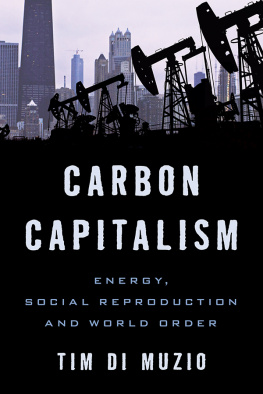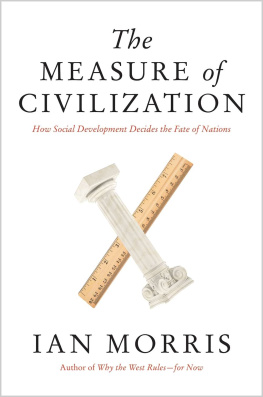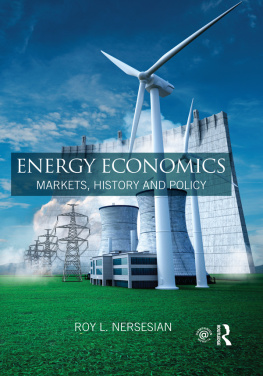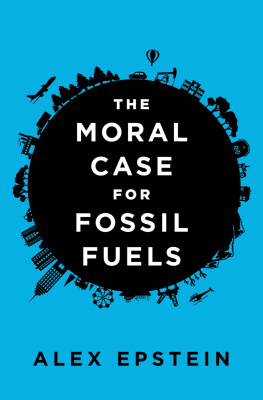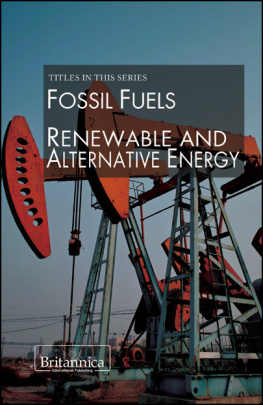FORAGERS,
FARMERS,
AND
FOSSIL
FUELS
THE UNIVERSITY CENTER FOR HUMAN VALUES SERIES
CHARLES R. BEITZ, EDITOR
Multiculturalism and The Politics of Recognition by Charles Taylor
A Matter of Interpretation: Federal Courts and the Law by Antonin Scalia
Freedom of Association edited by Amy Gutmann
Work and Welfare by Robert M. Solow
The Lives of Animals by J. M. Coetzee
Truth v. Justice: The Morality of Truth Commissions edited by Robert I. Rotberg and Dennis Thompson
Goodness and Advice by Judith Jarvis Thomson
Human Rights as Politics and Idolatry by Michael Ignatieff
Democracy, Culture, and the Voice of Poetry by Robert Pinsky
Primates and Philosophers: How Morality Evolved by Frans de Waal
Striking First: Preemption and Prevention in International Conflict by Michael W. Doyle
Meaning in Life and Why It Matters by Susan Wolf
The Limits of Constitutional Democracy edited by Jeffrey K. Tulis and Stephen Macedo
Foragers, Farmers, and Fossil Fuels: How Human Values Evolve by Ian Morris
FORAGERS,
FARMERS,
AND
FOSSIL
FUELS
How Human Values Evolve
Ian Morris
Richard Seaford Jonathan D. Spence
Christine M. Korsgaard Margaret Atwood
Edited and introduced by Stephen Macedo
PRINCETON UNIVERSITY PRESS PRINCETON AND OXFORD
Copyright 2015 by Ian Morris
Requests for permission to reproduce material from this work should
be sent to Permissions, Princeton University Press
Published by Princeton University Press, 41 William Street, Princeton,
New Jersey 08540
In the United Kingdom: Princeton University Press, 6 Oxford Street,
Woodstock, Oxfordshire OX20 1TW
press.princeton.edu
All Rights Reserved
Jacket images Fedor A. Sidorov, Kenshi991, Albert Kam,
UVAconcept. Images courtesy of Shutterstock.
Library of Congress Cataloging-in-Publication Data
Morris, Ian, 1960
Foragers, farmers, and fossil fuels : how human values evolve / Ian Morris;
[with responses by] Richard Seaford, Jonathan D. Spence,
Christine M. Korsgaard, Margaret Atwood ;
edited and introduced by Stephen Macedo.
pages cm(The University Center for Human Values series)
Summary: This is a successor work to Why the West Rules for Now, in which Morris once again advances an ambitious account of how certain brute material forces limit and help determine the culture, values, and beliefs, including the moral codes, that humans have adopted over the last 20,000 years. The present volume originated as Ian Morriss Tanner Lectures on Human Values, delivered at Princeton University in November of 2012Introduction.
Includes bibliographical references and index.
ISBN 9780-691160399 (hardcover : acid-free paper)
1. Social valuesHistory. 2. Social evolutionHistory. 3. Social changeHistory. 4. Power resourcesSocial aspectsHistory. 5. Hunting and gathering societiesHistory. 6. AgricultureSocial aspectsHistory. 7. Fossil fuelsSocial aspectsHistory. 8. CivilizationHistory. 9. CivilizationForecasting. I. Seaford, Richard. II. Spence, Jonathan D. III. Korsgaard, Christine M. (Christine Marion) IV. Atwood, Margaret, 1939- V. Macedo, Stephen, 1957- VI. Morris, Ian, 1960- Why the West rulesfor now. VII. Title.
GN469.M67 2015
303.4dc23
2014044896
British Library Cataloging-in-Publication Data is available
This book has been composed in Garamond Pro
Printed on acid-free paper.
Printed in the United States of America
1 3 5 7 9 10 8 6 4 2
FOR KATHY AND THE ANIMALS
Contents
CHAPTER 5THE EVOLUTION OF VALUES: BIOLOGY, CULTURE,
AND THE SHAPE OF THINGS TO COME
CHAPTER 6ON THE IDEOLOGY OF IMAGINING THAT EACH AGE
GETS THE THOUGHT IT NEEDS RICHARD SEAFORD
CHAPTER 7BUT WHAT WAS IT REALLY LIKE? THE LIMITATIONS
OF MEASURING HISTORICAL VALUES
JONATHAN D. SPENCE
CHAPTER 8ETERNAL VALUES, EVOLVING VALUES,
AND THE VALUE OF THE SELF CHRISTINE M. KORSGAARD
CHAPTER 9WHEN THE LIGHTS GO OUT: HUMAN VALUES
AFTER THE COLLAPSE OF CIVILIZATION
MARGARET ATWOOD
Figures and Tables
Figure 1.2.The water bearers: Kenyan women collecting
water at a stream
Figure 1.3.Secular-rational values and nonagricultural
wealth
Figure 1.4.Composite World Values Survey scores
and economic development
Figure 2.1.Locations and social groups mentioned
in chapter 2
Figure 3.2.Locations and social groups mentioned
in chapter 3
Figure 3.4.The exponential growth of European population
between 8000 BC and 2000 BC
Figure 4.2.Locations and social groups mentioned
in chapter 4
Figure 5.2.Locations and social groups mentioned
in chapter 5
Figure 5.3.Distribution of potentially domesticable
wild plants with seeds weighing at least
10 milligrams
Figure 5.4.Distribution of potentially domesticable
mammals weighing over a hundred pounds
Figure 5.6.The scale of major political units in Eurasia,
3000 BCAD 117
Figure 5.7.Eastern and Western energy capture per person
per day and the hard ceiling limiting agrarian
development, 1300 BCAD 1700
Figure 5.8.Trends in average real wages in selected
European cities and Beijing, AD 13501800
Figure 10.1.Locations and social groups mentioned
in chapter 10
Table 10.1. Yuval Noah Hararis comparison of ancient
and modern Athenian women
Figure 10.2.World peak energy capture,
14,000 BC to AD 2000
Acknowledgments
No author ever works alone, and this book would never have become a reality without the participation of a lot of people. First came Princetons University Center for Human Values, whose members kindly invited me to deliver the Tanner Lectures in November 2012. Before I even drafted the presentations, my Stanford colleague (and former member of the Princeton Center) Josh Ober talked me through the issues over several evenings of margaritas in Los Cabos. Once I arrived in Princeton, Erin Graham took wonderful care of me, while the audiences who came to the talks, the members of the Center for Human Values, and above all the respondentsMargaret Atwood, Christine M. Korsgaard, Richard Seaford, and Jonathan D. Spencechallenged me with all kinds of interesting questions. I did most of the work of expanding the two lectures into the first five chapters of this book during the 201314 academic year with the kind support of the Hoover Institution (where I held a Campbell National Fellowship) and the School of Humanities and Sciences at Stanford University. As I was writing, Sam Bowles, Giovanna Ceserani, Meiyu Hsieh, Steve LeBlanc, Paolo Malanima, and Rob Tempio guided me to readings that I never would have found for myself, and my arguments were sharpened greatly by conversations with Steve Haber and Richard Wrangham and by presenting a revised version of the arguments to members of al Quds University and the Albright Institute at the cole Biblique in Jerusalem. Once the chapters were drafted, Phil Kleinheinz, Josh Ober, Kathy St. John, Walter Scheidel, Paul Seabright, Ken Wardle, two anonymous readers for the Princeton University Press, and my editors Rob Tempio and Steve Macedo read the manuscript and gave me invaluable feedback. Michele Angel drew the marvelous maps, and Sandy Dijkstra, Elise Capron, Andrea Cavallaro, and Thao Le at the Sandra Dijkstra Literary Agency and Rob Tempio, Terri OPrey, and Jennifer Harris at the Princeton University Press kindly and patiently kept everything moving forward on the many occasions that my attention wandered. I owe a great debt of gratitude to them all, but particularly to Kathy St. John and the animals, who taught me whatever I know about human values.

